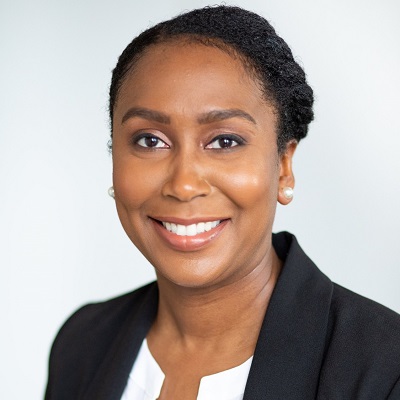Why My Heart is Broken: Becoming More Inclusive and Why it Matters
“There comes a time when silence is betrayal.” Dr. Martin Luther King, Jr.
If I can be honest, I debated whether or not to say something publicly about the heartbreak, anger and despair many are feeling right now, both minorities and non-minorities.
Sometimes, I’ve dealt with my sadness and frustrations about what’s happening in the world right now through silence, believing that my activities behind the scenes can drive and support change.
Well, as Dr. King said, “Silence is a form of betrayal” and even though I want to be silent and pretend racism, apathy, and hatred don’t still exist in 2020 (and in the middle of a global health pandemic that’s affecting every single human being), here we stand in 2020 facing issues we hoped one day would be a far distant, painful memory. And before you judge, it’s always best to walk a mile in someone else’s shoes. That’s called empathy.
For those who believe that LinkedIn is a business platform and “social justice” issues don’t belong here, I want to give you something to think about.
Marginalized and underrepresented groups, including black professionals, have to go back into workplaces after these feelings of heartbreak, exhaustion and overwhelm. They have to operate daily with a weight on their shoulders and their own personal dismissal of their experiences in the world as if everything is okay. Or worse, some may be in organizations where they don’t feel fully heard, valued or supported to thrive at their fullest potential; and because of this, feel they have to hide and pretend what’s happening around them isn’t stressful and affecting their ability to fully show up at work.
Some won’t say anything for fear of being judged. Others won’t say anything out of fear of losing their jobs, which can impact their livelihoods and ability to take care of their families. Some have simply gone numb from the pain believing that nothing will ever change.
No one is asking for “special” treatment… just fairness, empathy and respect. Just because you haven’t personally experienced something, doesn’t mean it doesn’t actually exist. I haven’t experienced the beauty of the Grand Canyon, but I know it’s there. I haven’t seen the beautiful waters of Fiji, but I know they exist.
Until you walk a mile in someone else’s shoes and truly seek to understand their experience in the world, you’ll never fully get it. We don’t have to agree with someone to listen to them.

Let’s not focus on points of agreement or disagreement. Focus on the common goal of creating a world and businesses that value and uphold the dignity of all individuals no matter their differences. I deeply want to believe that’s something we can all agree on.
We don’t have to accept someone else’s viewpoint to at least make them feel seen and heard. That’s why inclusion, diversity and equity (DEI) matters not just in our workplaces, but in our society as a whole. And, that’s why sharing suggestions, actionable strategies and insights to spark positive change on platforms like LinkedIn with business professionals around the world who can take a stand for DEI and lasting change in our broader societies makes it the perfect platform.
No matter how small, there’s always something you can do.
Here are 3 things you can do right now inside or outside of your workplace to become more inclusive and challenge your own assumptions and biases:
1) Ask yourself, am I exposed to people different than me or am I only around people like me?
2) When I seek advice, do I only seek the perspectives and advice of people who I feel are most like me and who are more likely to agree with my viewpoint?
3) Is there someone I can reach out to this week who is different than me and ask what has their experience been like in the workplace or in the larger society to help broaden my perspective of differences in experiences?
Remember, silence is comfortable, but using your voice and influence is one powerful way to evoke positive change. My heart is broken, but I’m encouraged by many organizations and people across the world who are using their voices and removing their “shoes” to walk a mile in someone else’s.
Know someone struggling with how to affect change around these issues in and outside of their workplace? Share this article with them and serve as accountability partners in following through on the three actionable tips in this post.
About the Author – Nicole Andrews, MBA, MHRD, is Vice President, Human Resources at McMillan Pazdan Smith Architecture. Based at the firm’s headquarters in Greenville, S.C., she has 15+ years of professional experience in the field of business and human resources. Nicole has a passion for coaching and career development, inclusion, engagement, employee and organizational development, and performance improvement. Connect with Nicole on LinkedIn.







